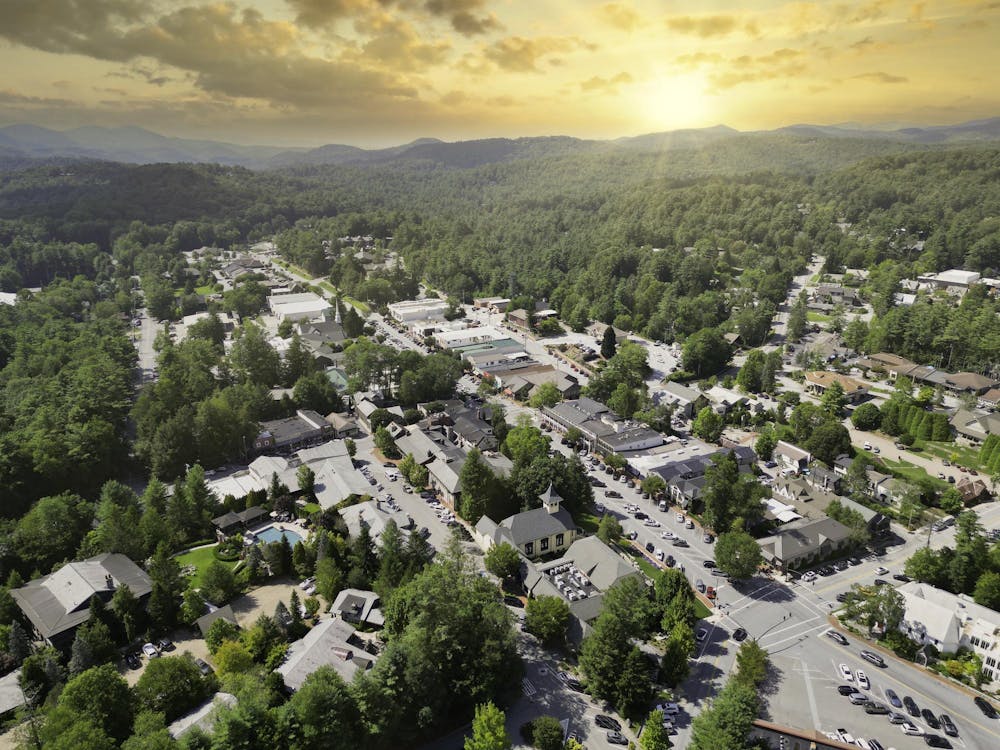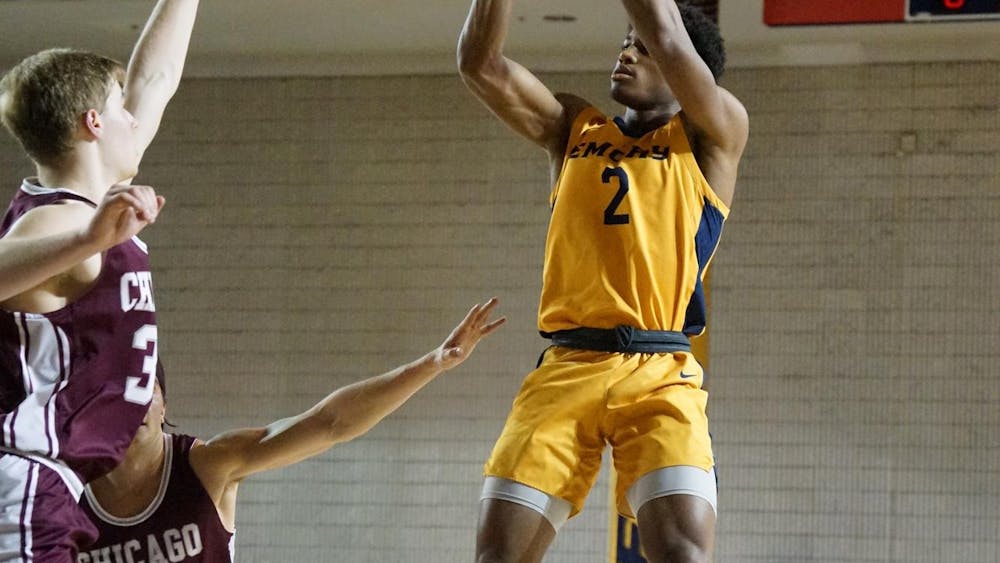Imagine this: a five-day retreat in the mountains of North Carolina with no phones, no career panels and no pressure to perform. Just 15 students, some of the top professors in the world and one powerful goal: to reflect on what drives us, what we value and who we are when no one is watching.
It may sound like a dream, but it happened. Over spring break this semester, I was one of 15 Emory University students whom professors selected to attend a retreat, Emory Advance, that most of us had never heard of before. The trip was fully funded, open to all first and second-years. The only requirement was to show up, be curious and be real.
The students who attended represented a microcosm of the entire Emory community: Black, Hispanic, white, Asian and multiracial students, international and first-generation students as well as Muslims, Jews, Christians and atheists.
Most of us arrived knowing no one else on the trip. By the second day, we were sitting on cabin porches under the stars, talking about our life experiences, fears and aspirations. Hamidah Jimoh (27C), one of my newfound peers, said she entered the retreat unsure about her academic and career paths but left the retreat with many important lessons learned.
“While I was there, I really didn't know that I needed that much time to think about what I stood for and who I was,” Jimoh said. “I came to that trip very burnt out and confused after spending my first semester here at Emory as a transfer student and I left with a clarity that I didn't really know that I needed.”
For me, the transformation was deeply personal. I realized how much my life at Emory had become a checklist — club meetings, leadership roles and polished answers to “tell me about yourself!” I was constantly trying to prove that I belonged, that I was impressive and accomplished enough.
But, in those mountains, without name tags, deadlines or a resume to hide behind, I finally asked myself questions I had been avoiding: What brings me joy? Who am I outside of achievement? If no one were watching, what kind of life would I build?
We did sunrise hikes. We cried. We laughed over campfire s’mores. We listened to each other’s stories. And, while we learned from the leadership and thought-provoking sessions professors led, we learned even more from our honest conversations with one another.
This retreat did not just build community. It transcended the barriers that too often divide our campus, such as race, religion, nationality, and political ideologies. It offered what so many students are quietly yearning for: connection, purpose and authenticity.
Yet, the retreat ended.
Fifteen of us were lucky enough to go on Emory Advance’s inaugural trip. But Emory has over 8,000 undergraduates. Such a transformative experience should not be limited to a handful of students.
Emory invests millions of dollars in campus life each year on concerts, giveaways, free food and career expositions. These programs matter to the student body, but I challenge our University to invest more intentionally in the souls of our students and the fostering of genuine connections.
In an age of rising loneliness, anxiety and burnout, we do not need another resume-building workshop. At Emory, it is easy to get caught in a cycle of back-to-back meetings, pre-professional pressures and the unspoken expectation to always be "on." But, Emory rarely gives students the space to step back and think about our true intentions and values. We need intentional spaces — like this retreat — where students can disconnect from the noise, reflect on their values and explore who they want to become beyond their majors and internships.
We need Emory to invest in these retreats, not as one-off programs once a semester for the lucky few, but as a core pillar of what a college education should be. The most transformative lessons we learn in college do not come from a textbook. They come from listening, vulnerability and shared experiences with people who challenge, inspire and change us.
I am deeply grateful to Emory and the faculty who made this retreat possible. Their vision and investment in something so rare and human gave me and 14 others an experience that has reshaped how we move through college. Most importantly, this opportunity allowed us to build a more united and less fractured campus.
Every student deserves the same chance. Purpose and community are not accidents. They are built intentionally. Let’s make that the norm.
Contact Noah Stifelman (27C) at noah.stifelman@emory.edu.









